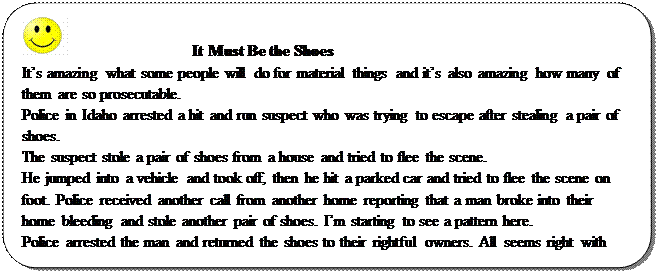 |
Главная Случайная страница Контакты | Мы поможем в написании вашей работы! | |
The police and the public
|
|
In the beginning of the 20th century the image of the friendly British 'bobby', with his fatherly manner, was well-known within the country and was reinforced by television. This positive image was not a complete myth. The system of policing was based on each police officer having his own 'heat', a particular neighbourhood which it was his duty to patrol. He usually did this on foot or sometimes by bicycle. The local bobby was a familiar figure on the streets, a reassuring presence that people felt they could trust absolutely.
In the 1960s the situation began to change in two ways. First, in response to an increasingly motorized society, and therefore increasingly motorized crime, the police themselves started patrolling in cars. As a result, individual police officers became remote figures and stopped being the familiar faces that they once were.
At the same time, the police found themselves having to deal increasingly with public demonstrations and with the activities of a generation who had no experience of war and therefore no obvious enemy-figure on which to focus their youthful feelings of rebellion. These young people started to see the police as the symbol of everything they disliked about society. Police officers were no longer known as 'bobbies' but became the 'fuzz' or the 'cops' or the 'pigs'.
Since the middle years of the twentieth century, the police in Britain have lost much of their positive image. A child who is lost is still advised to find a police officer, but the sight of one no longer creates a general feeling of reas  surance. In the 1980s there were a large number of cases in which it was found that police officers had lied and cheated in order to get people convicted of crimes (The Stefan Kizsko case). As a result, trust in the honesty and incorruptibility of the police has declined.
surance. In the 1980s there were a large number of cases in which it was found that police officers had lied and cheated in order to get people convicted of crimes (The Stefan Kizsko case). As a result, trust in the honesty and incorruptibility of the police has declined.
Nevertheless, there is still a great deal of public sympathy for the police. It is felt that they are doing an increasingly difficult job under difficult circumstances. The assumption that their role is to serve the public rather than to be agents of the government persists. Police officers often still address members of the public as 'sir' or 'madam'. Senior officers think it is important for the police to establish a relationship with local people, and the phrase 'community policing' is now fashionable. Some police have even started to patrol on foot again. Generally speaking, the relationship between police and public in Britain compares quite favourably with that in some other European countries. British police still do not carry guns in the course of normal duty (although all police stations have a store of weapons).
 The Stefan Kizsko case
The Stefan Kizsko case
On 18 February 1992, a man who had spent the previous sixteen years of his life in prison serving a sentence for murder was released. It had been proved that he did not in fact commit the crime.
In the early 1990s a large number of people were let out of British jails after spending several years serving sentences for crimes they did not commit. The most famous of these were 'the Guildford Four' and 'the Birmingham Six', both groups of people convicted of terrorist bombings. In every case, previous court judgements were changed when it became clear that the police had not acted properly (for example, they had falsified the evidence of their notebooks or had not revealed important evidence).
Public confidence in the police diminished. In the case of the alleged bombers, there remained some public sympathy. The police officers involved may have been wrong but they were trying to catch terrorists. The Kizsko case was different. He did not belong to an illegal organization. His only 'crime' was that he was in the wrong place at the wrong time. He also conformed to a stereotype, which made him an easy victim of prejudice. He was of below average intelligence and he had a foreign name, so a jury was likely to see him as a potential murderer.
 (a)Answer the questions:
(a)Answer the questions:
1) How did the situation change in the 1960s?
2) What was the public attitude to the police in 1980s and why?
3) What are the reasons for public sympathy for the police?
4) What are the examples of the unfair behavior of the police?
5) What is the public attitude to the police in your country?

TASK 3. Fill in the gaps with the words from the box and retell the whole text:
| local government, Greater, responsibility, gain, provides, registration, headquarters, employees |
Дата публикования: 2014-10-25; Прочитано: 1416 | Нарушение авторского права страницы | Мы поможем в написании вашей работы!
